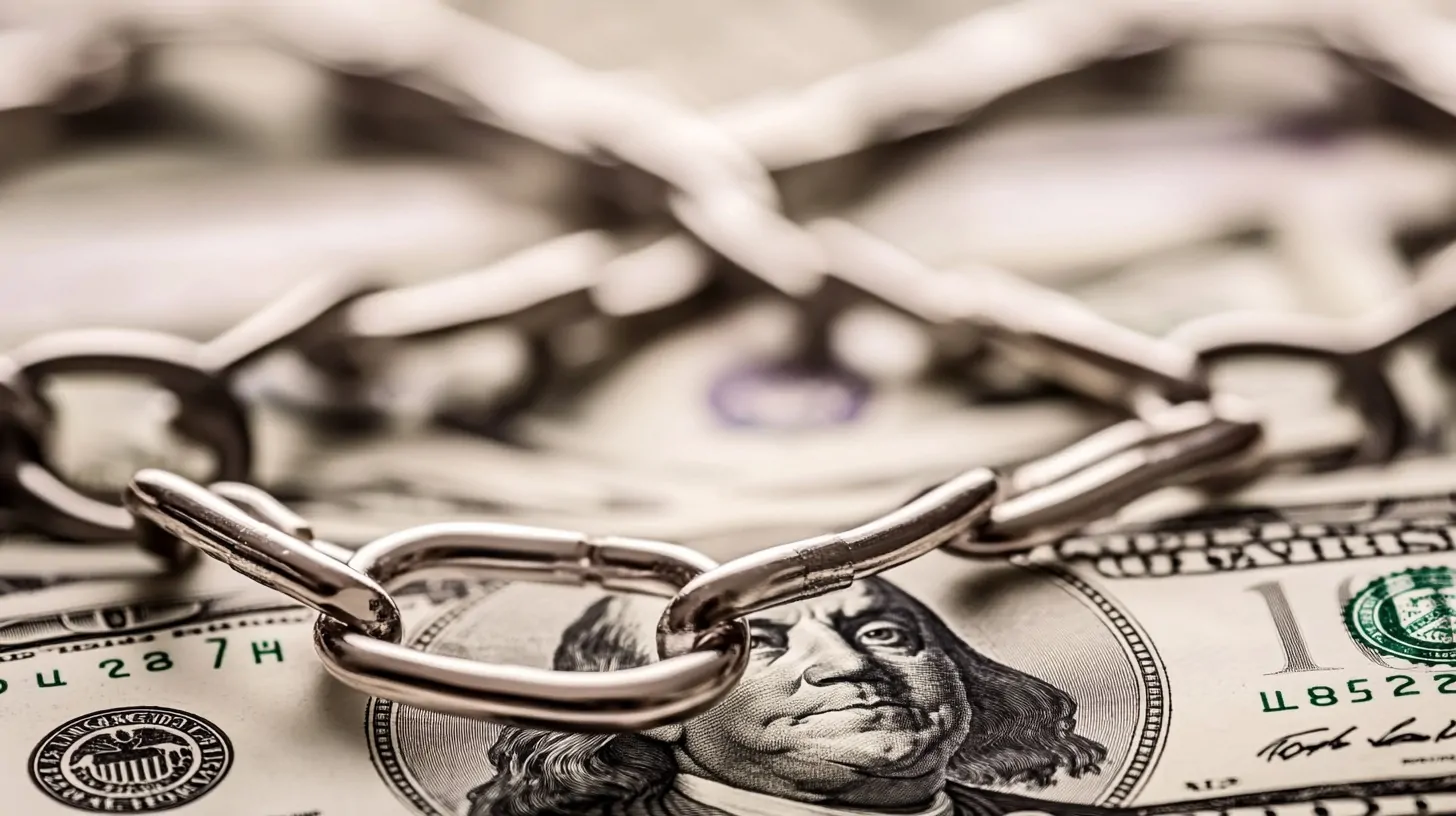Veterans, active-duty servicemembers, and their families face constant threats from scammers who want to steal their money and personal information. These criminals know that military benefits, steady paychecks, and trust in authority make veterans easy targets.
Scams come in many forms, from fake government agencies to fraudulent investment opportunities, all designed to trick victims into handing over cash or sensitive details.
Staying protected means knowing what to look out for and avoiding suspicious offers. Simple precautions, like verifying official contacts and being cautious with personal data, can help prevent financial loss.
Even everyday tools like a Free VPN for iPhone and iPad, such as VeePN, add an extra layer of security, making it harder for scammers to track online activity. Awareness is the best defense, so understanding common scams can help veterans and their families stay safe.
1. Impersonation
Scammers often pretend to be someone you trust to steal money or personal information. They may claim to be from the VA, IRS, Social Security, or even a fellow veteran. Some use fake military charities to ask for donations, while others pose as a romantic interest or long-lost friend needing urgent financial help.
Common Tricks Scammers Use
- Fake phone calls, emails, or social media messages pretending to be from a government agency.
- Calls or texts claiming a family member or friend is in trouble and needs money.
- Fake charities using emotional stories to pressure you into donating.
How to Avoid
- Never give personal information to someone who contacts you first.
- Verify organizations and charities before donating.
- If someone claims to be a government official, call the agency directly using a trusted number.
- Hang up on unexpected calls asking for money or sensitive details.
2. Military Pension and Investment Fraud

Scammers promise veterans larger pension payments or “exclusive” investment opportunities. They often say they can increase benefits in exchange for an upfront fee or by transferring pension funds to a different account. These scams not only steal money but may also disqualify veterans from other government aid.
How it Works
- A scammer posing as a financial expert or fellow veteran offers to boost pension benefits.
- Fake investment opportunities claim to offer “high returns” with “zero risk.”
- Fraudsters ask for an upfront fee, then disappear with the money.
How to Stay Safe
- Never move your pension into another account based on someone else’s advice.
- Always check if an investment advisor is licensed and trustworthy.
- If an offer sounds too good to be true, it probably is.
3. Fake Government Benefits & “Secret” Funding Programs
Scammers contact veterans with promises of special government grants or benefits they supposedly qualify for. They ask for personal information to “check eligibility” or demand a small fee to process the claim.
Common Lies Scammers Tell
- “You’ve been selected for a special veteran grant.”
- “A secret VA program will give you free money.”
- “We need your Social Security number to verify your benefits.”
How to Avoid This Scam
- The VA and government agencies do not offer “secret” programs.
- Never give out personal details to someone contacting you unexpectedly.
- Verify benefit programs directly through VA.gov or a VA office.
4. Mortgage and Housing Scams

Veterans looking for home loans, rentals, or refinancing deals are often targeted by scammers. They may claim to offer special VA-backed mortgage deals or ask for deposits on properties that don’t exist.
Signs of a Housing Scam
- Someone asks for an upfront deposit before showing a rental property.
- A company claims to offer a special VA loan but pressures you to act fast.
- The deal seems too good to be true, like an extremely low mortgage rate.
How to Protect Yourself
- Always visit rental properties in person before paying anything.
- Verify lenders through VA.gov or your bank.
- Never wire money or send payments without verifying the recipient.
5. Fraudulent Charges for Free Military Records

Scammers set up fake websites claiming to provide military service records or medical history for a fee. In reality, military records are free to veterans through official government sources.
What Scammers Do
- Create fake websites that look like government agencies.
- Charge for records that veterans can get for free.
- Steal personal information when veterans fill out forms.
How to Avoid This Scam
- Military records can be obtained for free at the National Archives website.
- Check for “https://” in website URLs to confirm security.
- Never pay for records without verifying the source.
6. Job and Education Scams

Scammers post fake job openings or education programs specifically targeting veterans. They often request personal information, charge upfront fees, or claim to offer special veteran discounts.
Signs of a Job or Education Scam
- The employer or school asks for a Social Security number or banking info upfront.
- The job posting promises “guaranteed employment” with no interview.
- The school asks for tuition fees before providing details about courses.
How to Stay Safe
- Check if a company or school is legitimate before applying.
- Never pay upfront for job placement or educational programs.
- Contact the Better Business Bureau (BBB) to verify the legitimacy of an employer.
7. Credit Monitoring and Identity Theft Scams

Veterans are often targeted by identity thieves, especially those deployed or away from home. Scammers offer fake credit monitoring services to “protect” financial information but actually steal identities.
How Identity Theft Happens
- Scammers pose as credit monitoring companies and ask for personal details.
- Fake alerts warn of identity theft and request immediate action.
- Stolen personal data is used to open bank accounts, loans, or credit cards.
How to Avoid Identity Theft
- Place an Active Duty Alert on credit reports before deployment.
- Use a Free VPN for iPhone and iPad to secure online activity.
- Monitor financial accounts regularly for suspicious activity.
8. Veteran Charity Scams
Scammers create fake charities claiming to help veterans in need. They use emotional appeals to collect donations, which go directly into their pockets.
Common Signs of a Fake Charity
- The charity name sounds real but is slightly different from a legitimate one.
- Pressure to donate immediately over the phone.
- Requests for donations through gift cards, wire transfers, or cryptocurrency.
How to Spot a Real Charity
- Verify charities through CharityNavigator.org before donating.
- Pay using a credit card, not cash or wire transfer.
- Ask for written details about how donations are used.
9. Car Sales and Financing Scams

Shady car dealers often target veterans with misleading financing deals or hidden fees. Some scams involve selling bad cars at high prices or sneaking extra costs into loan agreements.
Common Car Buying Scams
- “Payment packing,” where extra fees are added to a car loan.
- Bait-and-switch tactics that promise one deal but offer another.
- Charging high interest rates while claiming “special discounts for veterans.”
How to Avoid Being Scammed
- Get pre-approved for financing from your bank before shopping.
- Read the loan agreement carefully before signing.
- Walk away if a dealer pressures you into a rushed decision.
10. PACT Act Benefit Scams
Beware of PACT Act-related email, phone, and social media scams targeting Veterans’ PACT Act benefits by offering to submit claims on their behalf. You can protect yourself and your benefits. Work with entities accredited by VA.
Learn more: https://t.co/PDREP6DVJ1 pic.twitter.com/bp7f71jg0y
— Veterans Benefits (@VAVetBenefits) November 29, 2024
The PACT Act expands VA benefits for veterans exposed to toxic substances. Scammers now charge veterans fees to help them apply, even though applying is free.
How Scammers Trick Veterans
- Charging a fee to file a PACT Act claim.
- Posing as “VA representatives” to collect personal data.
- Offering fake services that “guarantee” benefits.
How to Avoid This Scam
- The VA never charges fees to apply for benefits.
- Only use the official VA website or a VA regional office to apply.
- Avoid companies that promise quicker or guaranteed approvals.
Last Words
Scammers are everywhere, and they will keep finding new ways to trick veterans and their families. The best way to stay safe is to stay informed. Always double-check who you are dealing with, never share personal information with strangers, and trust your instincts—if something feels wrong, it probably is.
Related Posts:
- Common Health Challenges Veterans Face and How to…
- Navy Seals vs. Marine - What Sets Them Apart?
- Common Boot Camp Myths - Why You Shouldn't Trust…
- How Many WW2 Veterans Are Still Alive? Will There Be…
- The Difference Between Memorial Day vs. Veterans Day
- The COVID-19 Crisis and Its Impact on Military and…







